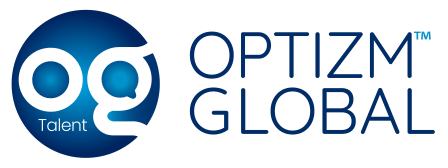The global economic downturn has given companies a new impulse to optimize profits, increase revenues and discover new sources of value closed in their operations. At the same time, it causes a return to the basic values that form the basis of the organization’s success.
Essentially, Human capital management is about supporting, enlarging and using the intellectual capital of the organization, providing each employee with the tools they need to reach their full potential. A key part of this strategy is to create a competent and motivated culture by initiating a remuneration strategy and developing people who are proficient in generating and disseminating knowledge effectively. This means identifying and implementing methods for acquiring, managing and retaining intellectual capital through roles, operational and personnel changes.
Companies that cannot fully grasp it can be exposed to financial and personal losses that are difficult to recover. However, those who see a strong correlation between employee productivity, personal growth, performance integration, and business development give companies a basis on which they can link resources directly to profits.
For any company thinking about Human capital management, it is important to realize that a successful program does not start and end in the HR department: it affects every aspect of the organization. A truly effective Human capital management program must be used in all components, departments and business functions.
Because intellectual capital is spread throughout the organization, linking every aspect of employee information, including productivity, knowledge, documents and skill sets, is a key and necessary means to achieve tangible results. Without such a plan or implementation option, the ability to quantify the return on investment in human capital cannot be achieved.
What’s more, a culture that can support the widespread involvement of resources through centralization and sharing of knowledge realizes that not only employees but also customers, partners, and suppliers are key to maximizing the value of intellectual capital.
Project management is required to redefine corporate goals and participants with achievable deadlines. Workflow management is required to determine the availability of resources and to adapt and monitor activities to previously set goals. Contact management is required to test and update customer accounts. Knowledge management is required to store all related sales tools in relation to business operations and provide management with strategic success and reporting ratios. Finally, human resource management is required to define the type of role required and to track staff activities based on motivation for rewards.
All these management processes are essential components to facilitate the role of the Human capital management manager as a central knowledge support system, not an isolated business function. To make intellectual capital a tangible and profitable reality with measurable success factors, information and processes are required from all points in the company.

A successful Human capital management process must be based on one centralized knowledge base that covers all business processes throughout the organization. Recognizing how each component of an organization contributes to human resource management during planning, support and management is a key factor in achieving success. A single centralized source for managing internal and external resources and access to them can be a comprehensive mechanism of self-service, performance tracking, strategic management and intellectual measurement by the organization.
After being implemented throughout the organization, Human capital management can lead to a reduction in staff turnover, better recruitment decisions, closer alignment of strategies to job development and tangible financial return on investment. By introducing a practice that facilitates the integration of workflow, projects, documents, and contact management, corporations can use technology to enable and strengthen.
Human capital management resource management practices, instead of relying on a silver-based solution.





